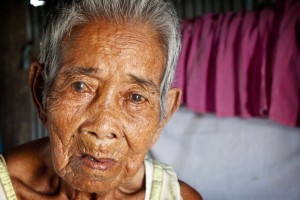 Mission to Cambodia 2013
Mission to Cambodia 2013
from Patrick Haltom
“Smile! When you walk, smile,” he said. Niron, one of the individuals assisting us on this trip, was simply giving us a short message, and while motos and tuk tuks were zooming between us on the busy streets beside Sihanouk Hospital, neither the environment nor the simplicity of his message detracted from his meaning. Instead, both added to what he was really saying: these people are grateful to have you, and even if you do nothing but smile at them, you are making a difference. As Mrs. Taplin would say, you are planting a seed.
 It is challenging to immerse oneself in a different country, especially a developing country. Discovering one’s purpose in this immersion is even more difficult; this is why Niron’s simple message to smile was so encouraging and set the stage for us to be bold and compassionate. Today was a big day for most of us, and while I could lead you through a chronological narrative of the day’s events, this would detract from my purpose in writing. I want, instead, to share tidbits of memories from the day. Small situations and stories that define the culture, the service we are providing, and the growth we are enduring.
It is challenging to immerse oneself in a different country, especially a developing country. Discovering one’s purpose in this immersion is even more difficult; this is why Niron’s simple message to smile was so encouraging and set the stage for us to be bold and compassionate. Today was a big day for most of us, and while I could lead you through a chronological narrative of the day’s events, this would detract from my purpose in writing. I want, instead, to share tidbits of memories from the day. Small situations and stories that define the culture, the service we are providing, and the growth we are enduring.
I had an impromptu lunch today with a man named Borey. He also worked for the hospital. We talked about Cambodia, the state of health here, and similarities and difference between Cambodia and America. Borey was kind enough to teach me a few extra words in his language, and I returned the favor by answering his questions about American obesity and how much we love our big macs. The conversation was clearly a win-win. He taught me how to say “Yes” correctly. In English the spelling translates into “Barth.” The pronunciation, however, is actually “Baaht.” It sounds like the “baaa-ing” of lost sheep just with a “t” on the end. The lost sheep example also pretty much sums up how I feel about trying to learn this language.
Some of us received the opportunity to go on HIV home visits. This experience was one of the most rewarding and also one of the most sobering. One of the most exciting parts was playing “dog, dog, goose” with some of the children at the village. I know the name is wrong, but sometimes when you ask for the word “duck” to be translated, the translator hears you say “dog.” This leaves you saying the wrong word in a different language, teaching the game with the wrong word, having 15 or more Cambodian children laughing at you, and ensuring that no one who played or witnessed ever forgets the Americans who called their children “dog, dog, GOOSE!” What can you do? It happens, right? And we all know this is a pretty solid way to build relationships across cultural barriers.
Also during the home visits, we met a man with 4 children whose wife had recently died from lung cancer. When we first heard his story before going into his poverty-stricken home, I was sad. The story was tragic. I felt the emotion, but I wasn’t upset. We walked into his home, had some brief conversation, and I prepared to take a picture. Through my camera lens I noticed a bra hanging on the wall behind the man and his youngest daughter. I froze. Chills crawled. My heart broke. This was real. It was no joke. It was no sad story. The man’s wife had died 10 days ago. Her clothing was still hanging heavily throughout the home, and the man and his children were still grieving.
As an individual, I can absorb, understand, assimilate, or sometimes block the big things. Mass poverty, poor hygiene, lack of adequate nutrition, are all widespread problems in Cambodia. But the little things, the little things are hard to block. They drip through the cracks in the mental walls, are the backwash of assimilating the big things, and seep through the pores of your mind. The little things don’t get cleaned up. They stick to everything, and they do exactly what they are supposed to do. They make the story more than just something to be heard. They make things real, make them tangible, make them personal, and if you’re lucky, they make the broken pieces of a distraught heart just a little bit softer. And this is truly the blessing in disguise.
This blessing is how you smile when you walk, and this is how all of Cambodia with the pain, the suffering, and all of the big things that make waking up in the morning seem impossible, can smile, too.
The picture above was my favorite smile today.
